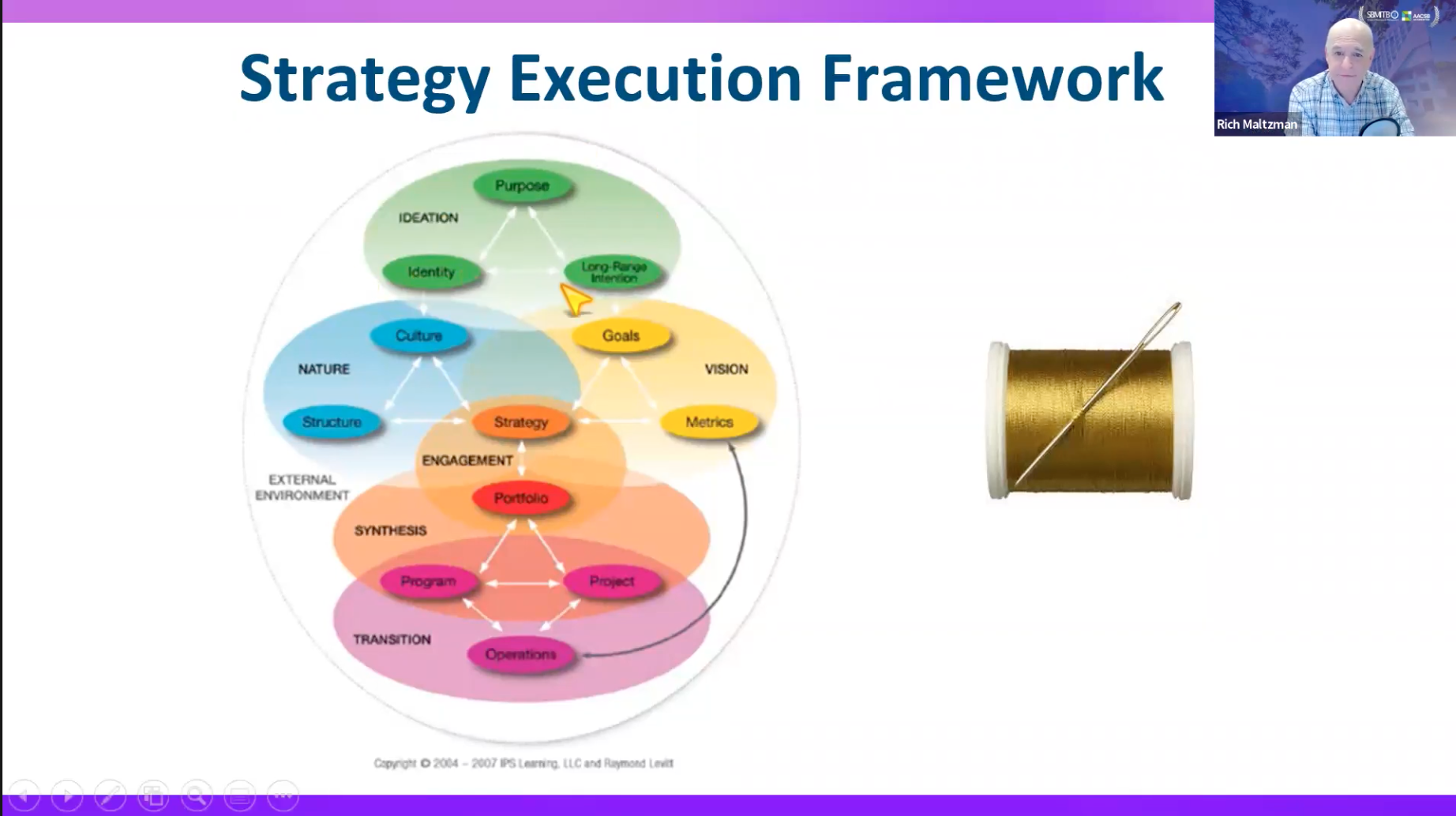Project managers mostly focus on getting the project done. Therefore, they may overlook other aspects, such as sustainability or the long-term perspective of the project. SBM ITB invited Professor Richard Maltzman, a Lecturer from Boston University, to a guest lecture session to discuss managing large-scale projects and sustainability on Wednesday (20/4/2022).
 According to Richard, quoting a study by Ruth Pearce comparing character strength, project managers are weaker than the average US population in terms of perspective. It means that project managers are often hyper-focused on one thing and do not think about anything else.
According to Richard, quoting a study by Ruth Pearce comparing character strength, project managers are weaker than the average US population in terms of perspective. It means that project managers are often hyper-focused on one thing and do not think about anything else.
“We, as project managers, don’t look in the longer term, but more geared towards the end of our projects. However, the projects we’re working on–buildings, transit systems, or anything else–will continue to operate for a long time. Therefore, we need to shift how we look at projects, stakeholders, and the world,” Richard stated.
Richard mentioned Boston’s Big Dig Tunnel project as an example of a large construction project that failed to have a holistic long-term vision. It had to install 25,000 light fixtures to hold up the falling lights a year after the project was completed due to galvanic corrosion caused by saltwater intrusion. The mishap cost 45 million dollars and disturbed the transit system due to lines closing and several officials getting fired.
“All these losses could have been avoided if the project managers considered the long-term effects and lifecycle and think about the outcome, benefit, and value instead of outputs only,” said Richard.
To shift this short-term mindset, Richard suggested that project managers implement the Lifecycle Thinking and Benefits Realization Management. Richard also recommended a book by Harry Mulisch, entitled The Discovery of Heaven, to build the mindset of long-term thinking, so project managers don’t stop their thinking at the ribbon-cutting ceremony.
“Project managers are notoriously, and somewhat necessarily, short terms thinkers. However, we need both views–the ‘get things done,’ and long terms view. My message is to think through beyond the end of your project, even to its shut down and disposal. Extend your thinking past your large-scale project’s end date, think about the threats that might happen in the future, and consider your planning. I think that would make a difference,” Richard concluded.




